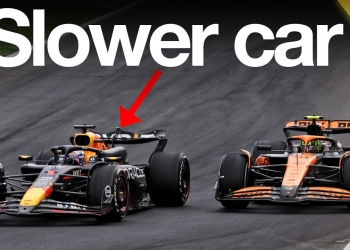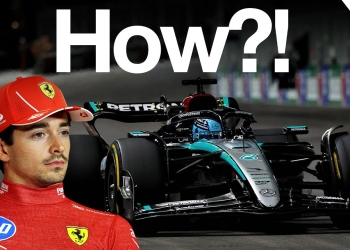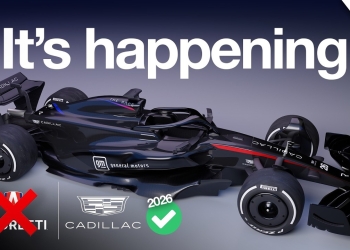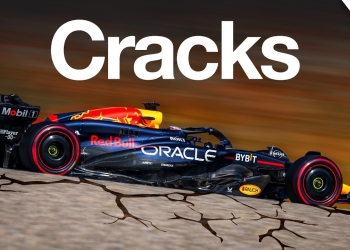Audi's F1 Challenge: A Steeper Hill to Climb
When Audi announced its entry into Formula 1, the motorsport world buzzed with excitement. Here was a giant of the automotive industry, ready to take on the pinnacle of racing. But as the old saying goes, "The bigger they are, the harder they fall." And fall they have—or at least stumbled significantly.
I've been covering F1 for over two decades, and I've seen my fair share of manufacturer entries come and go. Some, like Toyota, threw money at the problem and still couldn't crack the code. Others, like Mercedes, played the long game and reaped the rewards. Audi's situation? It's shaping up to be a cautionary tale of underestimating the beast that is Formula 1.
The Reality Check
Let's not sugarcoat it: Audi's takeover of Sauber has been a mess. The team has scored fewer points in 41 races since Audi's announcement than they did in the 19 races of the 2022 season alone. It's like watching a high-performance road car try to navigate the Nordschleife—it looks good on paper, but the reality is far more challenging.
Mattia Binotto, the newly appointed Sauber boss, didn't mince words when he described the situation. He called it "very painful" and admitted the challenge was "even bigger than I was expecting." Coming from a man who navigated the treacherous waters of Ferrari politics for years, that's saying something.
The Technical Tangle
One of the most glaring issues is the disconnect between Sauber's current operations and Audi's future plans. It's like trying to retrofit a turbocharger to a naturally aspirated engine—possible, but fraught with complications.
Click here to preview your posts with PRO themes ››
Binotto highlighted the need to improve everything from organization and tools to processes and facilities. In F1 parlance, that's basically saying, "We need to rebuild the entire car from the ground up."
"We need to train our muscles for the future," Binotto said. "This is a long-term project that also needs some immediate improvements."
This isn't just about tweaking the front wing or finding a few tenths in the pit stops. We're talking about a fundamental overhaul of how the team operates.
The Corporate Conundrum
One of my biggest concerns when manufacturers enter F1 is corporate interference. I've seen it sink projects faster than a lead weight in quicksand. Audi CEO Gernot Döllner's statement that he'll "personally involve myself more intensively" set off alarm bells in my head.
However, there's a glimmer of hope. Döllner also emphasized the need to keep the F1 project "away from Audi's own in-house processes." If they can stick to this—and that's a big if—it could give the team the autonomy it needs to thrive.
The Driver Dilemma
As for the drivers, it's a toss-up. Nico Hülkenberg is locked in, but the second seat is up for grabs. Valtteri Bottas seems to be the frontrunner, but there's chatter about younger talent like Théo Pourchaire or even McLaren junior Gabriele Mini.
Personally, if I were in Binotto's shoes, I'd lean towards experience for now. Building a competitive F1 car is like solving a Rubik's Cube blindfolded—you need all the feedback you can get. A seasoned driver can provide invaluable insights that could accelerate development.
The Road Ahead
So, where does this leave Audi? In a word: behind. They've already had to push back their target for fighting for wins from 2028 to an unspecified "long-term" goal. It's like showing up to Le Mans with a half-built prototype—you're not just playing catch-up; you're redefining the race entirely.
Click here to preview your posts with PRO themes ››
But let's not write them off just yet. F1 has a way of surprising us. Remember Brawn GP's phoenix-like rise from the ashes of Honda? Or Red Bull's journey from quirky energy drink company to dominant force?
Audi has the resources, the determination, and now, with Binotto at the helm, the experience to turn this ship around. It won't be easy, and it certainly won't be quick. But in the high-octane world of Formula 1, stranger things have happened.
As we head into the next few seasons, all eyes will be on Hinwil and Neuburg. The clock is ticking, the pressure is mounting, and the competition isn't waiting. Audi's F1 dream may have hit some early turbulence, but the race is far from over. After all, in F1, it's not about how you start—it's about how you finish.
-
My love for Formula 1 started in my dad’s garage, where I spent weekends tinkering with engines. As a Bristol-born journalist, I cut my teeth at local papers before landing a gig covering F1 for a major UK outlet. Now, I’m the resident expert on all things F1, from tire strategies to team politics. When I’m not trackside, you’ll find me karting or binge-watching classic races. Read more about me and my team
View all posts









